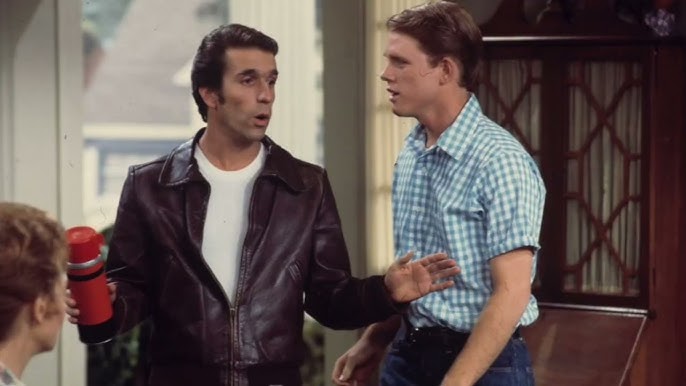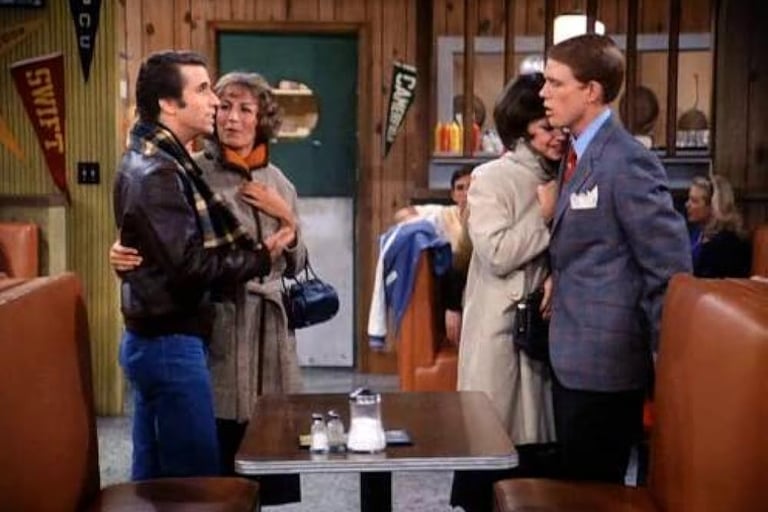Happy Days & 1970s TV: Sexual Humor & Cultural Shifts
Fonzie as a dating mentor? 'Happy Days: A Date with Fonzie' reveals 1970s television's shift towards more suggestive content. Discover how this episode used humor to explore sexual themes and target a youth audience
2/25/20252 min read


Happy Days: A Date with Fonzie (1975) focuses on Fonzie as Richie's mentor in dating and having sexual interaction with women by introducing Richie to Shirley, an older and sexually experienced woman. This particular screening ties back to Levine's text by showing that the television network in the 1970s became "suggestive" in society (170). To achieve this social change, many comedy and sitcom television programs in the 1970s include sexual themes as humor and entertainment elements that target the youth and women as primary audiences. In the screening, the repetition of the word "love" and "laughing in" (audio cues), the red color background and heart shape (symbolism), and couple dancings, hugging and kissing (physical interaction) foreshadows and emphasizes humorous sexual content. The sexual content is strongly depicted by its digestive narrative style and Richie and Shirley's characterization. Richie is a shy and unconfident young boy interacting with ladies.


Fonzie appears as Richie's mentor
In contrast, Shirley represents a confident woman by expressing her sexual desire through her "temptations behavior" such as wearing a short black dress, short hair, wearing makeup, and being independent in her hugging, cuddling, and kissing. Shirley's characterization refers to the Women's rights (freedom) movement and the 1920s flappers (200). Hence, by emphasizing Shirley and Richie, the ABC directly targets the young audience and women as the primary audiences by boosting their curiosity for a sexual relationship, which is a "taboo" in public and TV networks during the 1950s (196). Consequently, ABC successfully constructed Happy Days to support Elana Levine's argument that sexuality should be more suggestive as a pleasure to enjoy a happy life during the post-war period.

